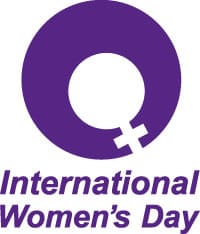Last month, Women in Tech.co.uk featured an article highlighting the ‘5 transferable skills that make you perfect for a tech role’.
These ‘soft skills’ are indeed the quiet powerhouses that can unlock new opportunities, whether as a female technologist you’re job-hunting or eyeing a promotion.
I’ve been invited to explore one of those five skills in more depth, writes Danielle Keegan, associate director at technology staffing and IT jobs agency VIQU.
Communication is women in tech’s soft skills superpower
Well, as a recruiter with 15 years of experience who’s never been known to turn down an RSVP, it’s clear to me that ‘Communication’ is one of the most powerful tools that we women in the tech industry have. Not just in tech, actually, but the workplace as a whole.
Communication can make the difference between being heard, being heard just a bit, and being heard but not listened to. Conversely, master the art of communication as an underrepresented techie, and you’ll truly make a marked impact on your technology career.
Five ways women in tech can improve their communication prowess
Below, I explore five ways that women in tech can improve their communication prowess, so much so that communication could even become your secret superpower.
1. Listen like a leader
“Most people do not listen with the intent to understand; they listen with the intent to reply.”
In the workplace, listening is often the first thing to slip, as the above quote from Stephen R. Covey implies.
We jump in with ideas or plan our response before someone’s even finished speaking.
But real communication — strong, authentic, trust-building communication, needs LISTENING first.
Active listening is a skill you can build. It’s about slowing down and showing the person in front of you that they matter.
Try the ‘pinch’ listening technique, also known as Anchoring
One technique I love involves gently pinching your fingers together while the other person is talking.
This is a psychology skill called ‘Anchoring’, where we train our brains to associate the action with listening and remaining quiet.
The Business Analyst who didn’t listen…
Let’s take a real-world example.
We placed a Business Analyst with a well-known cosmetics brand.
Now, it’s important to note that the most effective Business Analysts are front-facing, so they will sit and collaborate with users to understand issues and challenges.
This individual was highly technical and really knew her stuff. However, we received feedback from the client that although they were impressed with her knowledge level, she just wasn’t LISTENING to people.
‘Fact-finding’ tech roles require advanced listening skills and empirical understanding
Instead, our BA was making assumptions based on her enviable experience, and her impressive knowledge. When actually, and stated in black and white in the job advert that she successfully responded to, her role for the cosmetics company was to “fact-find” and “then understand”.
In fairness to the individual, once she received feedback that she wasn’t listening effectively and needed to understand which parts of her experience to bring to the table at different times, she acknowledged it and improved her active listening skills significantly.
2. Diffuse, don’t defend -- also known as Hovering
Tough conversations in the tech department or workplace more generally are inevitable.
Whether it’s a disagreement with a colleague or giving honest feedback, emotions can easily run high. And when voices rise and tensions build, it’s easy to fall into the trap of reacting instead of responding.
In leadership training, I learned about ‘hovering’.
Hovering is all about intentionally:
- slowing your pace,
- softening your voice, and
- lowering your tone during a heated exchange.
What happens when women in tech hover?
When you ‘hover,’ the other person unconsciously mirrors your calm, and suddenly, the conversation moves from combative to collaborative.
A lot of IT roles are user-facing to some extent, and when tech goes down, people can get emotive.
So being able to communicate well and diffuse situations will help you work out issues and give support effectively.

3. Stay graceful under pressure, also known as Box-Breathing
Interviews and important meetings can be nerve-wracking. Heart racing? Tick. Sweaty palms. Invariably. And a bad case of the butterflies! Definitely.
The problem is that the underlying nerves can affect your ability to communicate effectively.
But you can absolutely ground yourself before you walk into the room.
What is Box-Breathing?
One of my favourite pre-interview tools is Box-Breathing.
To ‘box-breathe,’ you inhale for 4 seconds, hold for 4, exhale for 4, hold for 4. Do this for just a minute or two, with eyes closed if you can. It’s a gentle ritual that calms the nervous system and helps you feel clear and confident.
Oh, and I’d switch out caffeinated drinks for water before your interview.
I remember hearing from a fellow tech recruiter how a candidate drank three coffees before their interview, and it ended with the client calling an ambulance when the candidate said they had heart palpitations.
4. AI for effective communication: what will you find out about yourself?
Although Artificial Intelligence (AI) will undoubtedly bring some disruption over the coming years with roles evolving and certain jobs changing, it will also unlock a huge number of opportunities.
One of the areas where AI has made a real difference is in communication.
I speak with many clients who are also using AI tools to enhance the way they interact with others, sometimes even to soften the tone of an email!
In addition, I know of some IT leaders who use AI to support their own development. By recording meetings they host and presentations they attend, they can use AI to provide feedback on how they came across.
As it’s being generated by AI, the feedback is objective, there’s no emotional filter, no personal bias. It’s purely about how their communication as a tech leader may have been perceived, and where to improve. Give it a go yourself!
Whose emails and comms couldn’t do with a fine-tune?
Women in tech who want to move up into managerial and leadership positions should strongly consider using AI to fine-tune their communications.
On top of helping you to potentially realise efficiency gains, AI makes you more naturally self-aware thanks to the impartial feedback it delivers.
Such self-awareness and the ability to self-critique (sometimes known as a ‘self-appraisal’ by women working in tech corporations) are invaluable as you look to move up the ranks.
5. Be willing to improve, so that may mean joining Toastmasters…
I speak with many women, particularly in tech, who don’t naturally see themselves as strong communicators.
More often than not, this isn’t a reflection of ability, but rather a result of :
- learned behaviours,
- limiting beliefs, or/and;
- past experiences.
I remember working with a brilliant female senior project management professional. When I first met this individual, she was working in a PMO as an assistant to a project manager. She was keen to progress her career but struggled with verbal communication. Whether it was contributing in meetings or having difficult conversations, she’d always show up, but felt her lack of confidence was visible, and it made her uncomfortable.
Determined to overcome this, she joined Toastmasters, a public speaking group where she could practise in a safe space alongside others working on the same goal.
That ‘silly’ feeling? Don’t blush, it’s a tangible point to grow from
I still remember her describing her first session, sitting in the car afterwards, feeling sad and, in her words, “a bit silly”. But she kept going. She pushed through the discomfort, and with time, her confidence began to grow.
The communication skills she developed started to come through at work.
She ran more meetings, presented with clarity and authority, and before long, she was leading entire IT projects and managing her own team.
What’s your ‘missing piece’ as a woman in tech, and how will you locate it?
This former PM assistant already had all the technical and business skills; the ‘missing piece’ that she felt held her back was a lack of confidence in how she communicated.
It’s no secret that many women in tech can struggle with confidence.
Techies (generally) work best independently and are exceptionally skilled, but that doesn’t always translate into feeling comfortable speaking up.
The truth is, we often have some of the most valuable and insightful contributions to make — it’s just about finding the confidence to share them.
Communication, the one art you can brush up on…
If communication doesn’t come naturally to you, remember these behaviours can be changed. They’re not fixed. When communication becomes a skill you own, not just use, you’ll notice the difference, not only in your current IT job, but in how confidently you carry yourself in the workplace at all stages of your tech career.

Danielle Keegan
Danielle Keegan is a technical IT recruiter with 14+ years’ experience in identifying and securing the best permanent IT talent for businesses across the UK.
As an associate director and head of permanent recruitment at VIQU IT, Danielle plays a pivotal role in driving the business forward and contributing to innovative solutions for VIQU’s clients and candidates.
Danielle is passionate about encouraging more women to consider careers in tech and takes prides herself in leading the conversation at VIQU IT and among her client base. These efforts include spearheading a Women in Tech interview series and introducing new processes to household name clients to reduce unconscious bias and encourage more opportunities for women working in tech.




